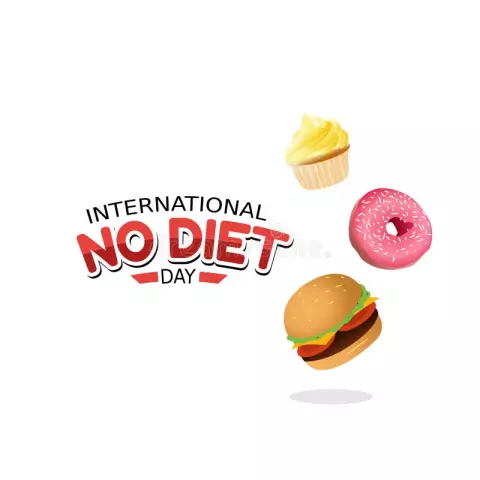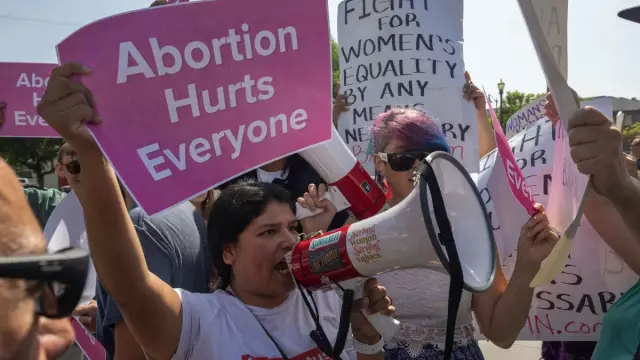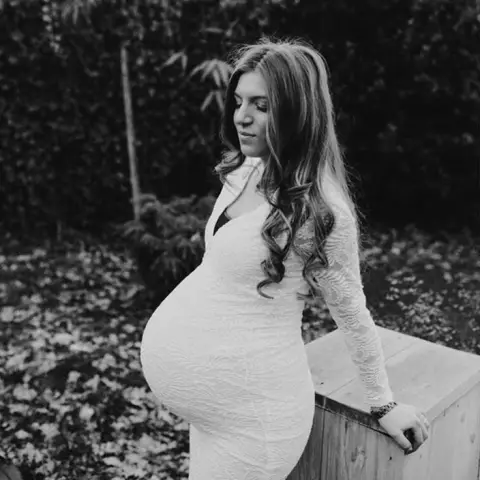- Author Rachel Wainwright wainwright@abchealthonline.com.
- Public 2023-12-15 07:39.
- Last modified 2025-11-02 20:14.
Is it possible to get pregnant on the last day of menstruation

A woman who responsibly approaches contraception is faced with many questions. Including whether it is possible to get pregnant on the last day of your period.
Menstrual cycle
The reproductive system of the body is a human organs, the function of which is to prolong the genus. The reproductive system of the female body reaches optimal activity by the end of adolescence (about 16 years), and at the age of 45-55 years, reproductive, menstrual and hormonal functions gradually fade away. Accordingly, from the age of 16 to menopause, the female body is ready to conceive, carry and feed a child. This readiness is supported by the coordinated work of different levels of the reproductive system and is manifested by the presence of a menstrual cycle with ovulation. Normally, the cycles are repeated monthly and are absent only during pregnancy and the first months after birth. Ovulation, however, may not occur in one or two menstrual cycles per year, even in a healthy woman.
Menstruation is called bloody discharge from the genital tract that occurs regularly in a woman of childbearing age. These secretions are rejected cells of the endometrium (the inner surface of the uterus). From the first day of menstruation, the cycle begins. On average, the normal cycle is about 28 days (21 to 35), and the discharge can last from 2 to 7 days. The normal menstrual cycle consists of two phases (follicular and luteal), between which ovulation occurs (the release of a mature egg). The main hormone in the first phase of the menstrual cycle is follicle-stimulating hormone (FSH). It is produced in the pituitary gland (a gland in the brain). The main biological actions of FSH are the growth of follicles (germ cells) and the synthesis of estrogen in the ovaries. In the first phase, the old endometrium is rejected and the new one grows. The follicles are the precursors of the mature egg. In one cycle, several cells can begin to mature at the same time in the ovaries. When the largest follicle reaches a size of 14 mm in diameter (becomes dominant), the maturation of the remaining cells stops. This process is a kind of selection, that is, as a result, the egg will mature from the strongest and most viable follicle.
At the end of the follicular phase, ovulation occurs. Within about a day (maximum 48 hours) after the release of the egg, fertilization is possible. Normally, the duration of the luteal phase is about 14 days, but even in the same woman, significant fluctuations are possible (from 7 to 20-22 days). After the release of the egg into the abdominal cavity, the luteal phase of the menstrual cycle begins. The main hormone in this phase is progesterone. It is produced in the ovaries by the "corpus luteum" (a unique temporary gland formed at the site of the dominant follicle). Progesterone prepares the endometrium and the entire female body for the implantation of a fertilized egg. If conception did not occur, then after 14 days the process of endometrial rejection begins, the body enters a new menstrual cycle.
When is conception possible? Is it possible to get pregnant on the last day of your period?
Conception itself (fertilization of the egg) is possible within a maximum of 48 hours after ovulation. Only at this time there is already a mature egg in the genital tract and degradation (“aging”) processes have not yet taken place in it. The unfertilized egg dies 24 to 48 hours after ovulation. Conception can occur as a result of unprotected intercourse that occurs within 24 hours (or a little more) after ovulation. Also, sperm cells already in the genital tract can fertilize an egg. The life span of sperm varies greatly depending on the characteristics of the male body and a number of other factors. A man's age, the presence of chronic diseases, smoking, high temperature conditions, a sedentary lifestyle, sedentary work, taking medications,the use of lubricants reduces sperm quality and the life span of male germ cells. A week is considered the maximum lifespan of these cells in a woman's body after intercourse. Thus, "dangerous" in terms of pregnancy are seven days before and two days after ovulation. Ideally, ovulation occurs on the fourteenth day after the start of your period. This means that pregnancy is possible from the seventh to the sixteenth day of the cycle, inclusive. The "calendar" method of contraception is based on this principle. On dangerous days, the couple avoids unprotected intercourse. The method has unsatisfactory reliability indicators. Pearl's index for this method is 25 - 40 according to various sources, which means that more than a quarter of all women who use the “calendar” method become pregnant during one year of active sexual activity. So,the question "is it possible to get pregnant on the last day of menstruation?", has a positive answer. Pregnancy is also possible with unprotected intercourse after the sixteenth day of the cycle.
Why you can get pregnant on the last day of your period and other "non-dangerous" days
The "calendar" method of preventing unwanted pregnancy is unreliable, since it is impossible to accurately predict the day of ovulation without additional research. The follicular phase, as mentioned above, can last from 7 to 20 to 22 days. The duration can be different even for the same woman. This means that ovulation can occur as early as the seventh day of the cycle. Given that sperm cells live in a woman's genital tract for up to a week (regardless of menstruation), even the first day of menstruation already has a small risk of conceiving a child with unprotected intercourse. The longer the period itself, the closer the last day of discharge may be to ovulation. If your period is long, then the risk of getting pregnant on the last day of your period is quite high. The likelihood of conception on this day also increases,if the woman has a short menstrual cycle (less than 28 days). So, the last day of menstruation is not favorable for conceiving a child, but the risk of getting pregnant during this period is quite high.
How to avoid pregnancy on the last day of your period

If pregnancy is highly undesirable, it is imperative to use reliable methods of contraception on the last day of your period. You can recommend, for example, barrier methods of preventing unwanted pregnancies. In the event that unprotected intercourse has occurred, emergency contraception may be used. These methods must be used in the next few days (as early as possible) after unprotected intercourse. Contraception in this case is aimed at preventing ovulation, fertilization and egg implantation. The most widely used reception of gestagens in a large dose (Postinor), other options are possible. Emergency contraception methods should not be used too often, as they cause some harm to the female body. Of course, abortion is even less safe.
YouTube video related to the article:
Found a mistake in the text? Select it and press Ctrl + Enter.






